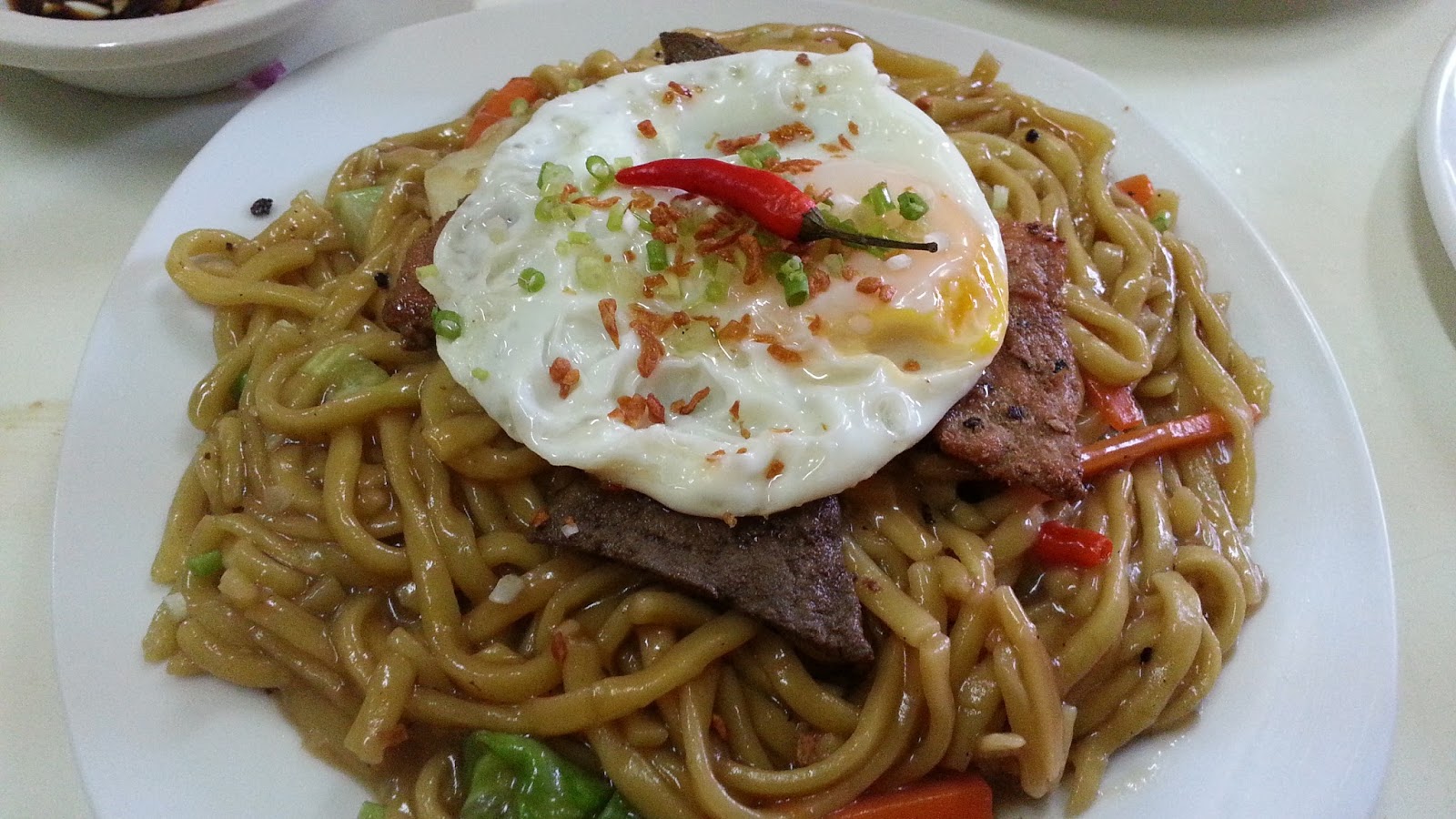Table of Contents
- I. Batangas Cuisine – Introduction
- II. Overview of Batangas Cuisine
- III. Batangas Cuisine – Signature Delicacies
- A. Batangas Cuisine – Lomi
- B. Batangas Cuisine – Batangas Bulalo
- C. Batangas Cuisine – Kapeng Barako
- D. Batangas Cuisine – Gotong Batangas
- E. Batangas Cuisine – Sinaing na Tulingan
- F. Adobo sa Dilaw
- G. Batangas Cuisine – Maliputo at Tawilis
- H. Batangas Cuisine – Tapang Taal
- I. Batangas Cuisine – Suman
- J. Batangas Cuisine – Tamales ng Ibaan
- IV. Batangas Cuisine Culinary Festivities
I. Batangas Cuisine – Introduction
Let’s embark on a culinary journey to the heart of the Philippines as we explore the rich and flavorful world of Batangas Cuisine. Batangas is not only known for its picturesque landscapes but also for its distinctive and mouthwatering dishes that reflect the region’s cultural heritage. So, buckle up your taste buds for a culinary adventure of Batangas Cuisine, where every dish is a celebration of local culture, history, and a warm welcome to anyone eager to savor the flavors of this enchanting Philippine province.
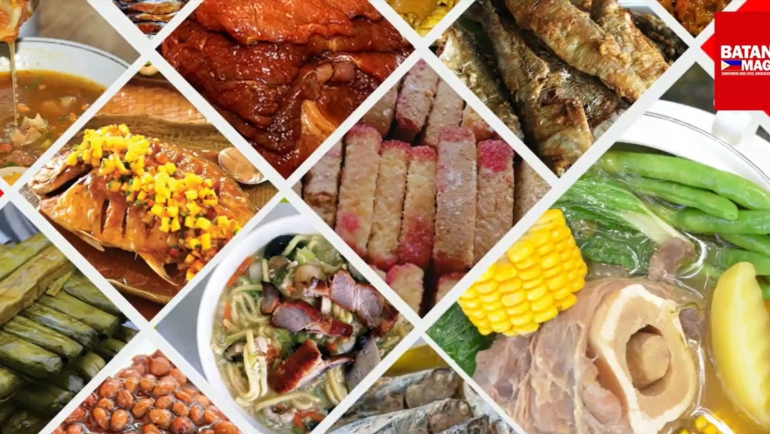
Batangas Cuisine – Showcase of Batangas Food Delicacies
A. Batangas Cuisine – Brief Overview of Batangas
Nestled in the heart of the Philippines, Batangas emerges as a culinary haven, where the landscapes are as diverse as the flavors that grace its tables. From rolling hills to pristine beaches, Batangas is a province that wears its natural beauty proudly, a perfect backdrop for the gastronomic treasures it holds.
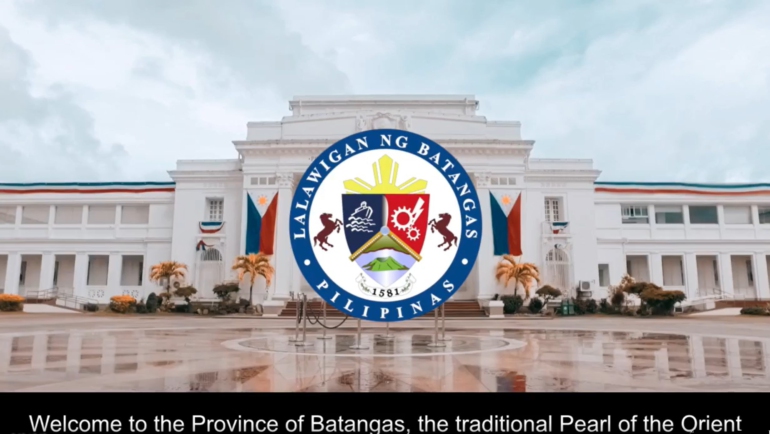
Batangas Cuisine – Province of Batangas
B. Batangas Cuisine – Importance of Food in Batangueño Culture
In Batangueño culture, every meal is a celebration, a testament to the rich tapestry of traditions woven into the fabric of daily life. The dining table becomes a stage for stories, laughter, and the passing down of ancestral wisdom. Food is not just sustenance; it’s a language, expressing love, respect, and community bonds.
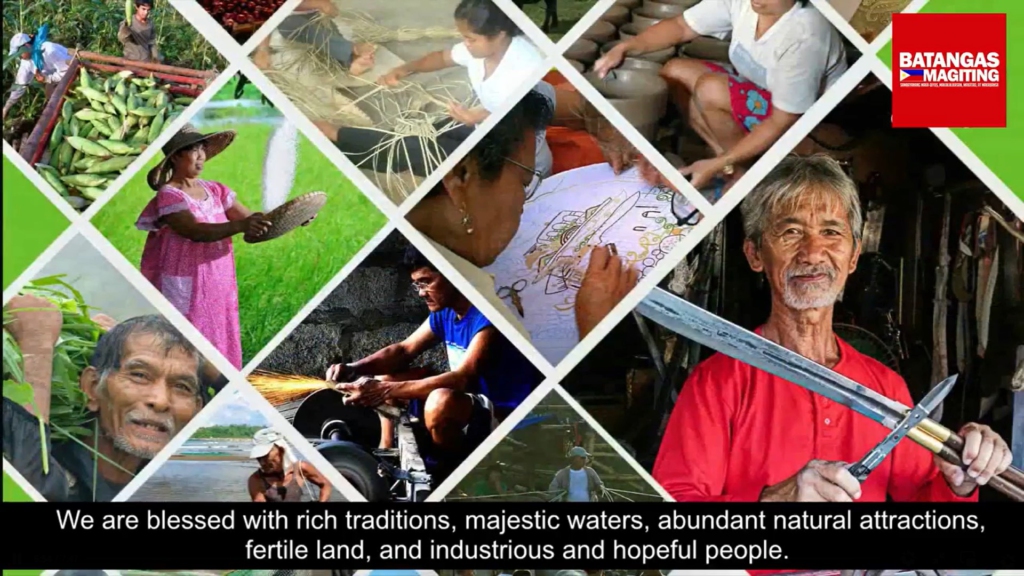
Batangas Cuisine – Batangueño Culture and Traditions
C. Batangas Cuisine – Showcasing Famous Delicacies
As we embark on this culinary exploration, the goal is to spotlight the iconic flavors that define Batangas. Through vivid descriptions and insightful narratives, we aim to bring the essence of Batangas Cuisine to your fingertips, enticing you to savor and appreciate the unique dishes that have become synonymous with this province. But first, here’s the overview how Batangas Cuisine came about before feasting your eyes with their famous delicacies that will surely make you visit the Ala-Eh capital.
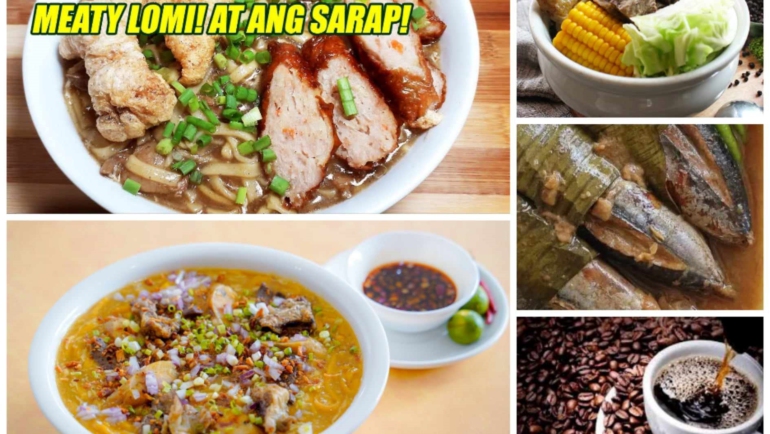
Batangas Cuisine – Batangas Famous Delicacies
II. Overview of Batangas Cuisine
A. Historical Influences on Batangas Cuisine
Batangas cuisine is a reflection of its diverse history, shaped by centuries of trade, colonization, and cultural exchange. Influences from Chinese, Spanish, and Malay cuisines have melded seamlessly with indigenous practices, resulting in a culinary landscape that’s both varied and distinct. In the heart of Batangas province, a tapestry of regional festivals unfolds, each weaving together the vibrant tapestry of Batangas Cuisine. This culinary tradition, a mainstay in every celebration is meticulously crafted and perfected overtime, adding a unique and flavorful touch to the festivities.
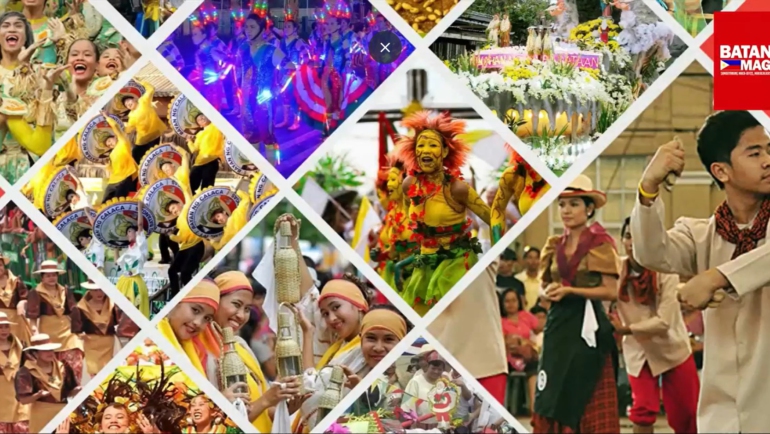
Batangas Cuisine – Batangas Festivals
B. Emphasis on Local Ingredients and Flavors for Batangas Cuisine
What sets Batangas cuisine apart is its reliance on locally-sourced, fresh ingredients. From the fertile soil of its agricultural lands to the bounty of the seas that kiss its shores, Batangas takes pride in the authenticity of its produce. Each dish tells a story of the region’s commitment to showcasing its agricultural richness.
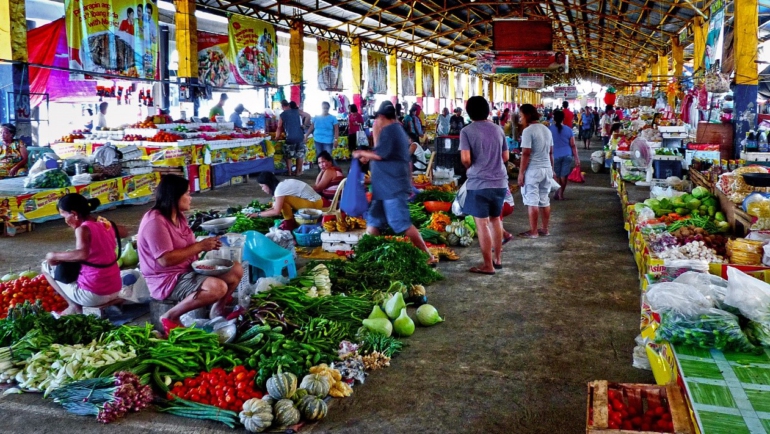
Batangas Cuisine – Source of Local Ingredients
C. Unique Cooking Techniques
Batangueños have mastered the art of cooking, employing techniques passed down through generations. From the meticulous preparation of the ingredients to the precise execution of cooking methods, every dish is a testament to the skill and craftsmanship that define Batangas cuisine.
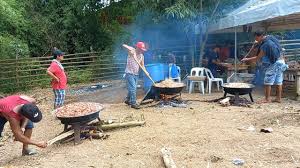
Batangas Cuisine – Cooking Techniques
In the upcoming sections, we’ll delve deeper into the signature delicacies, street food gems, and culinary events that make Batangas a true paradise for food enthusiasts. Join us on this virtual feast as we explore the flavors that make Batangueño cuisine a cherished cultural heritage.
III. Batangas Cuisine – Signature Delicacies
Dive into the heart of Batangueño gastronomy as we unravel the secrets behind its signature delicacies. Each dish is a masterpiece, echoing the traditions and flavors that define Batangas’ culinary identity.
A. Batangas Cuisine – Lomi
1. Brief Description and Origin
Lomi, a noodle soup that originated in the Fujian province of China, has found a second home in the bustling kitchens of Batangas. This heartwarming dish features a rich, savory broth, loaded with thick egg noodles, and a symphony of toppings that elevate its taste to unparalleled heights.
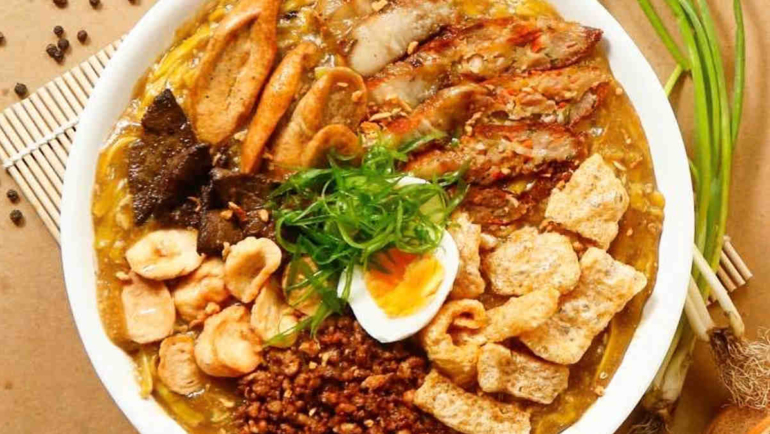
Batangas Cuisine – Batangas Lomi
2. Key Ingredients
Batangueño Lomi is characterized by the perfect blend of fresh local ingredients. Succulent meat cuts, often pork or chicken, swim alongside fresh vegetables, creating a harmonious balance that defines this beloved dish.
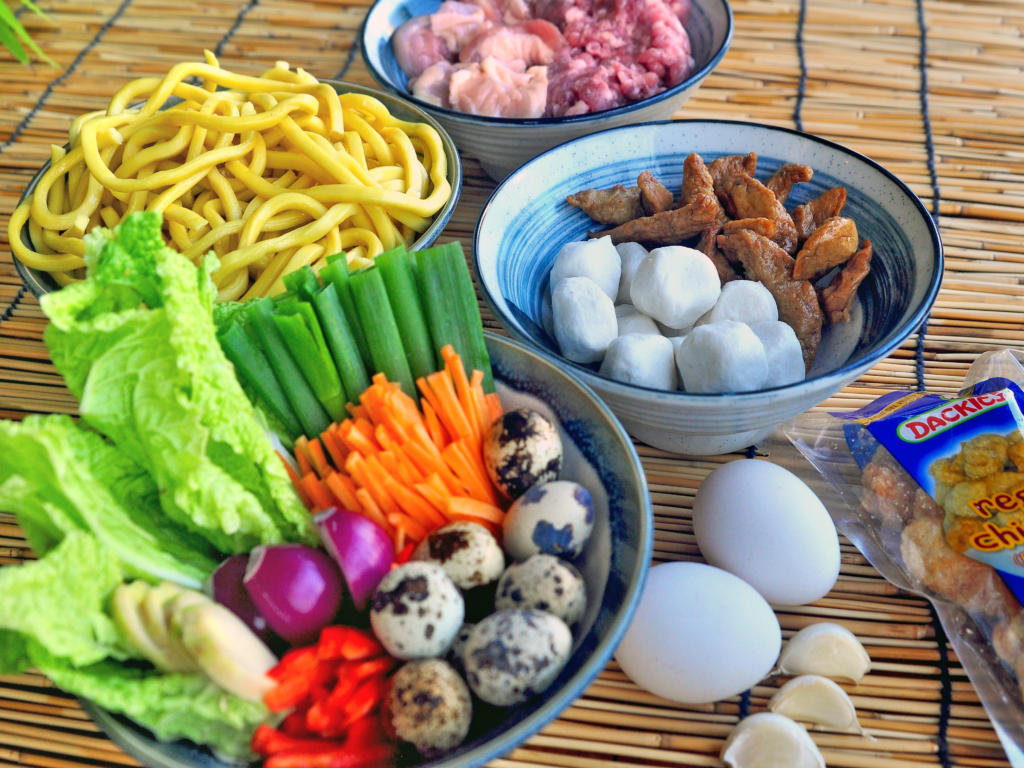
Batangas Cuisine – Batangas Lomi Ingredients
3. Traditional Preparation Methods
The artistry of Batangas Lomi lies in its meticulous preparation. Expert cooks engage in a slow, deliberate process, allowing the flavors to meld and intensify. The result is a bowl of comfort that captures the essence of Batangueño culinary finesse.
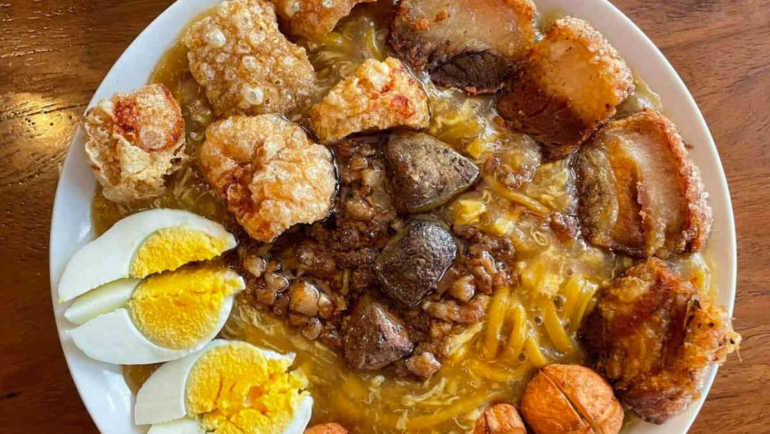
Batangas Cuisine – Batangas Lomi Variety
4. Popular Variations
Batangas takes pride in its diverse Lomi variations. From seafood-infused delights to spicy renditions that ignite the taste buds, each locality adds its unique twist to this beloved dish, making it a versatile canvas for culinary creativity.
B. Batangas Cuisine – Batangas Bulalo
1. Explanation of Bulalo
Batangas Bulalo is a masterpiece of simplicity and depth. This beef shank and marrow bone soup captivates with its clear broth, tender meat, and melt-in-your-mouth marrow, creating an indulgent experience that has become a Batangueño culinary icon.
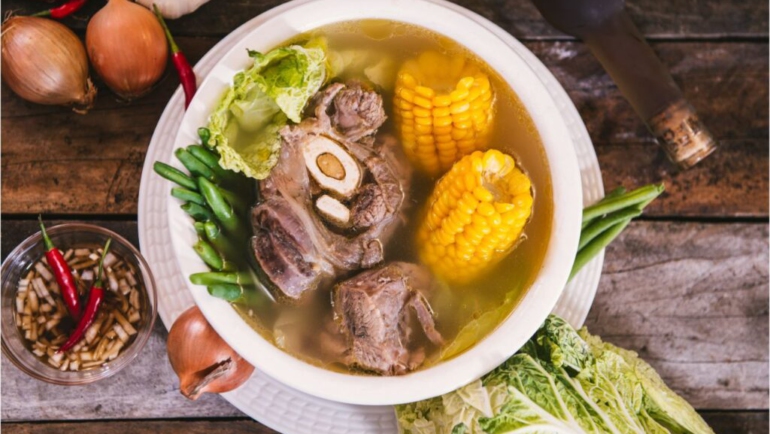
Batangas Cuisine – Best Bulalo
2. Batangueño Twist on the Dish
What sets Batangas Bulalo apart is the meticulous selection of beef cuts and the infusion of local herbs and spices. This gives the dish a distinct flavor profile, a testament to the region’s commitment to using the finest ingredients in crafting this beloved comfort food.
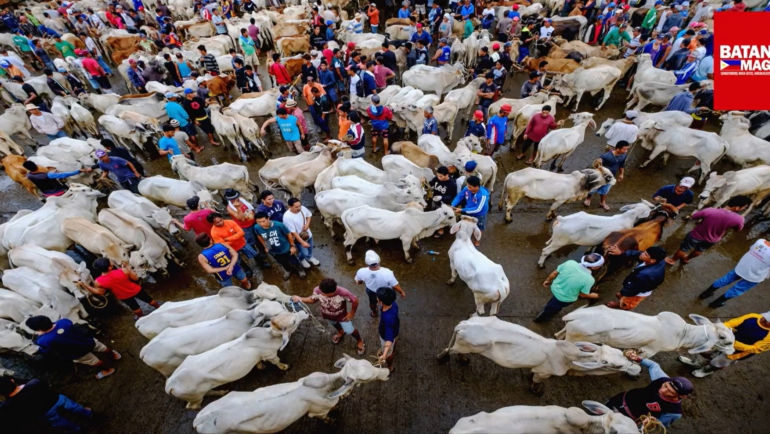
Batangas Cuisine – Batangas Bulalo Finest Beef
3. Serving Traditions and Recommended Accompaniments
Bulalo in Batangas is not just a meal; it’s a celebration. Served steaming hot, often accompanied by a side of fish sauce with calamansi, and paired with freshly steamed rice, the experience is a symphony of textures and tastes that leave a lasting impression.
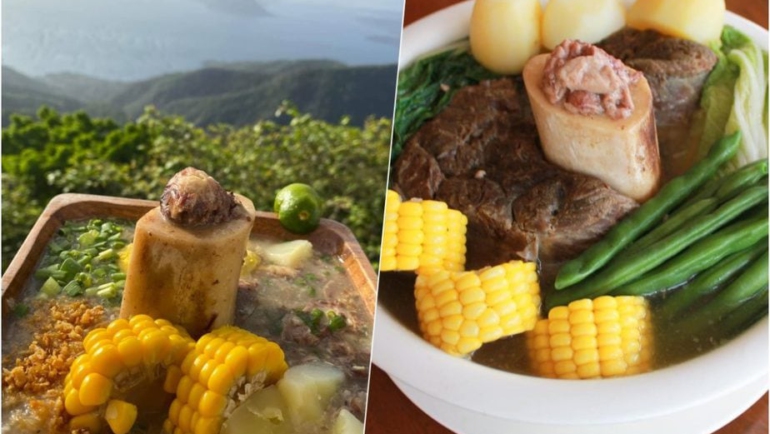
Batangas Cuisine – Batangas Bulalo Variation
C. Batangas Cuisine – Kapeng Barako
1. Introduction to Kapeng Barako
Batangas is synonymous with Kapeng Barako, a robust coffee variety that has become a symbol of the region’s coffee culture. Grown in the fertile soil of Batangas, this coffee is an aromatic journey that captivates coffee connoisseurs.
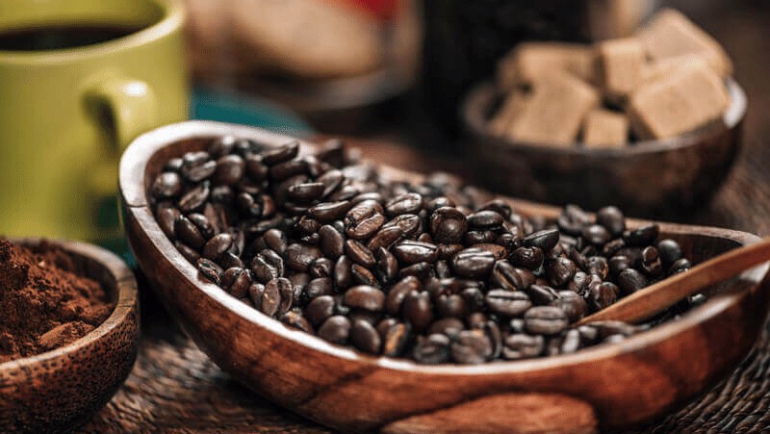
Batangas Cuisine – Kapeng Barako Beans
2. Unique Characteristics of Batangas Coffee
Batangas coffee is celebrated for its bold and intense flavor profile. With hints of chocolate and a deep, smoky aroma, each cup tells a tale of the volcanic soils and ideal climate that contribute to the unique character of Kapeng Barako.
3. Traditional Brewing Methods
The preparation of Kapeng Barako is an art passed down through generations. From meticulous harvesting to the traditional brewing methods, Batangueños take pride in preserving the authenticity of this beloved beverage.

Batangas Cuisine – Finest Kapeng Barako
4. Cultural Significance
Beyond its rich taste, Kapeng Barako holds cultural significance in Batangas. It’s not just a beverage; it’s a symbol of hospitality, often shared during social gatherings and celebrations, fostering a sense of community and connection.
D. Batangas Cuisine – Gotong Batangas
1. Cultural Significance
Gotong Batangas is more than just a soup; it’s a cultural emblem. Passed down through generations, this dish symbolizes the warmth of Batangueño hospitality, often served during special occasions and community gatherings. Its preparation and consumption are steeped in cultural significance, often acting as the centerpiece during celebrations and gatherings. Families come together to share not just a meal but an experience that binds them to Batangas’ rich communal traditions. This communal aspect is vital, reflecting the province’s close-knit community bonds.
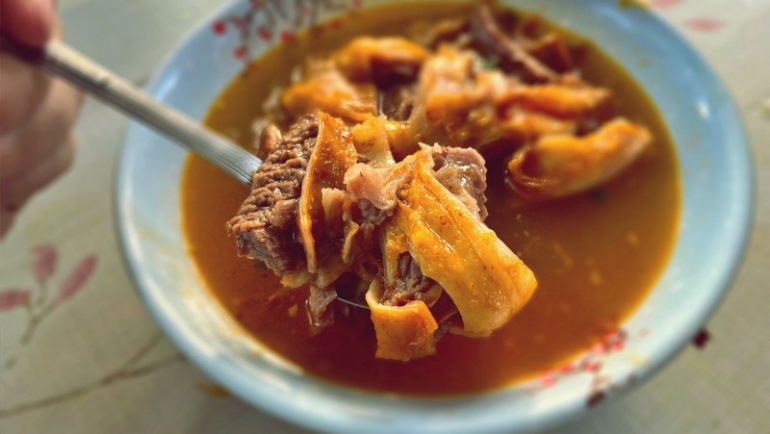
Batangas Cuisine – Best Gotong Batangas
2. Key Ingredients
The symphony of flavors in Gotong Batangas is orchestrated by a harmonious blend of key ingredients. Batangas beef takes center stage, imparting a robust and hearty essence to the broth. Local vegetables dance alongside, contributing freshness and depth. Essential spices like laurel leaves and peppercorns are the secret notes that elevate this soup to a culinary masterpiece.
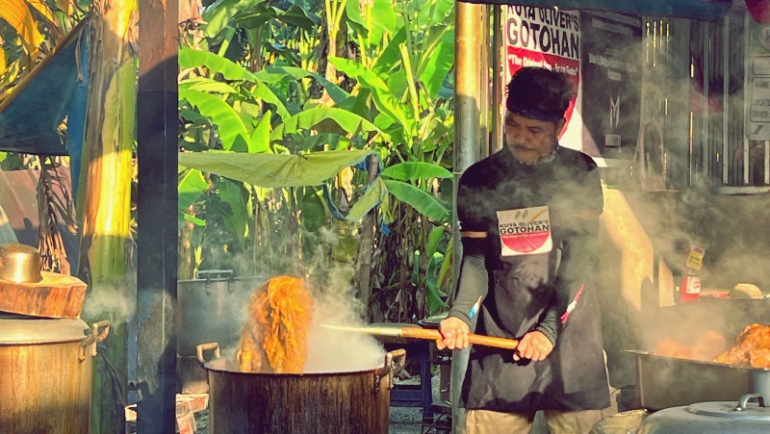
Batangas Cuisine – How to cook Gotong Batangas
3. Preparation Process
Discover the artistry behind preparing Gotong Batangas. Delve into the slow-cooking process that allows the flavors to harmonize, creating a broth that embodies the essence of Batangueño culinary finesse. The meticulous process involves simmering Batangas beef to perfection, allowing the flavors to meld.
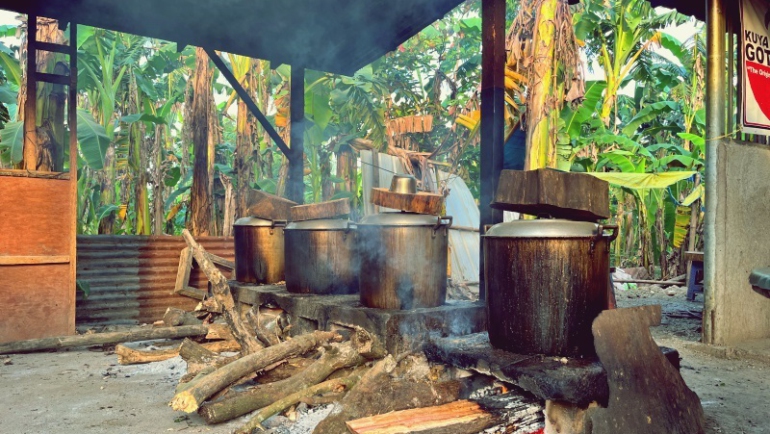
Batangas Cuisine – Gotong Batangas Cooking Technique
4. Regional Variation
As we traverse the culinary landscape of Batangas, the regional variations of Gotong Batangas come to light. Each locality within the province adds its unique twist, be it in the choice of ingredients or the subtle differences in preparation techniques. Exploring these regional variations unveils the diversity woven into the culinary fabric of Batangas.
E. Batangas Cuisine – Sinaing na Tulingan
1. Cultural Importance
Sinaing na Tulingan, a seafood masterpiece, holds profound cultural importance in Batangas. Traditionally prepared in clay pots, this dish is more than a meal; it’s a connection to the province’s coastal heritage and a celebration of its bountiful seas.
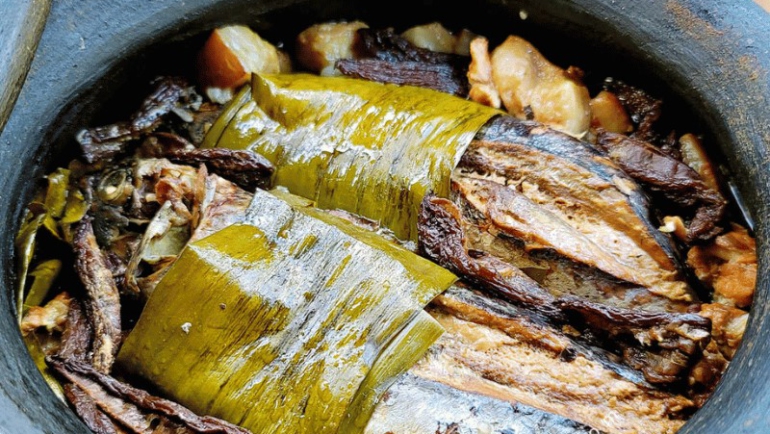
Batangas Cuisine – SInaing na Tulingan in a Claypot
2. Ingredients and Flavor Profile
Sinaing na Tulingan is a symphony of local ingredients. Tulingan, a variety of mackerel, takes center stage, infusing the dish with a robust flavor. Combined with indigenous spices like dried kamias (bilimbi) and batuan (Garcinia binucao), it creates a harmonious blend that tantalizes the taste buds. The slow cooking process allows these flavors to meld, resulting in a savory and uniquely Batangas taste.
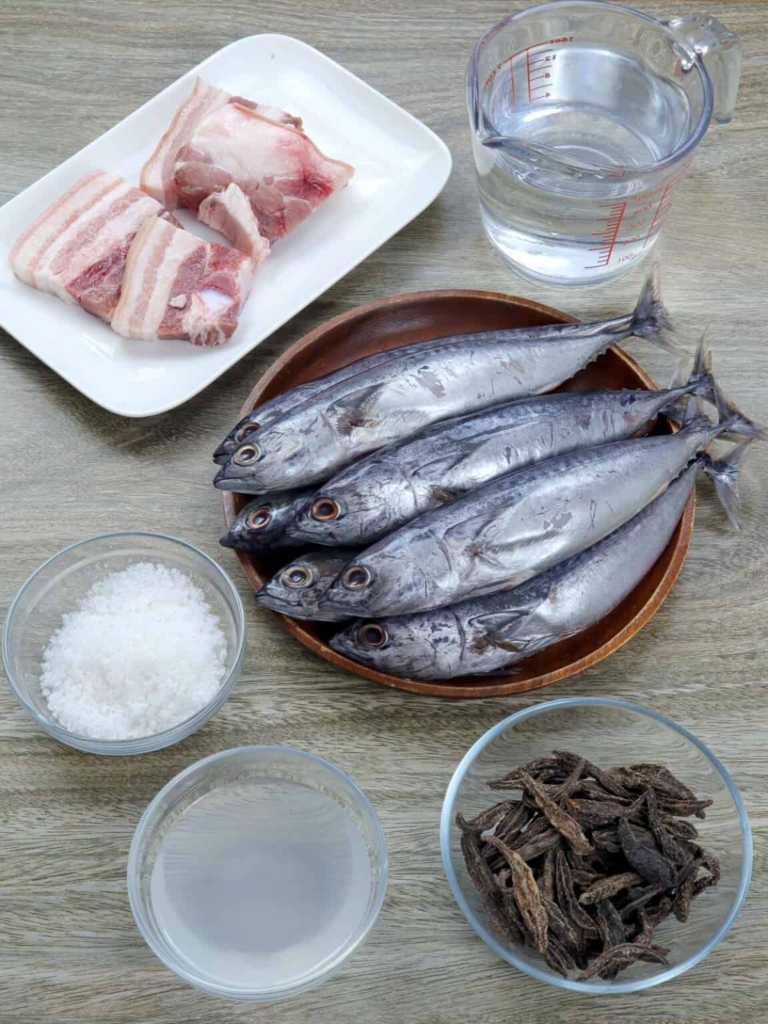
Batangas Cuisine – Sinaing na Tulingan Ingredients
3. Culinary Traditions
Sinaing na Tulingan is more than a recipe; it’s a passage of culinary wisdom through generations. The meticulous preparation and slow-cooking technique showcase the time-honored traditions of Batangueño cuisine. Passed down from elders, these traditions add a layer of authenticity to every pot of Sinaing na Tulingan, preserving the essence of Batangas’ culinary heritage
F. Adobo sa Dilaw
1. Description of Adobo sa Dilaw
Adobo sa Dilaw, a jewel in Filipino cuisine, is a vibrant twist on the classic Adobo. The “Dilaw” in its name refers to turmeric, the star ingredient that imparts a golden hue to this dish. This savory delicacy is a harmonious blend of tender meats, often chicken or pork, marinated and slow-cooked in a symphony of local spices, resulting in a flavor profile that is both robust and subtly aromatic. The golden color and bold taste make Adobo sa Dilaw a feast for the senses, a testament to the creativity embedded in Filipino culinary heritage.
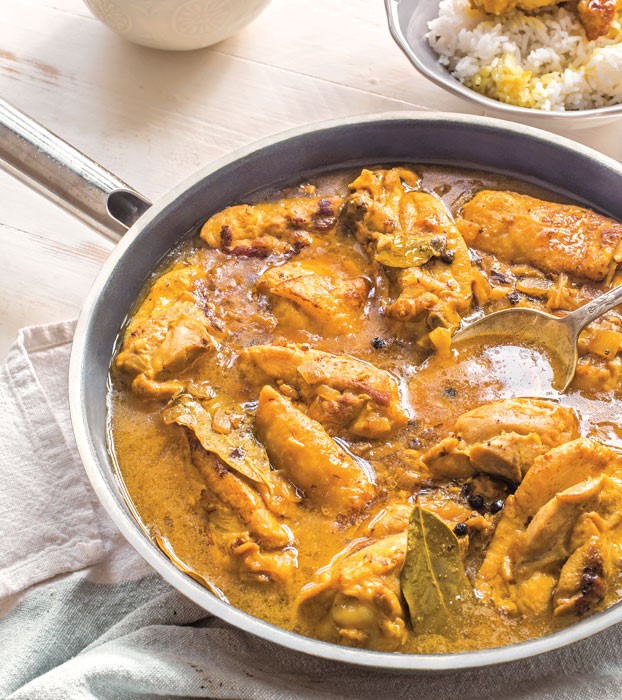
Batangas Cuisine – Adobo sa Dilaw
2. Ingredients that Give it a Distinctive Color and Flavor
The distinctive color of Adobo sa Dilaw owes its brilliance to the inclusion of turmeric, a golden-hued spice celebrated for its earthy and slightly bitter notes. Complemented by the classic Adobo marinade of soy sauce, vinegar, garlic, and pepper, the turmeric elevates the dish, providing not only visual allure but a unique flavor profile that sets Adobo sa Dilaw apart from its traditional counterpart. The careful balance of these ingredients creates a taste sensation that is both familiar and delightfully novel
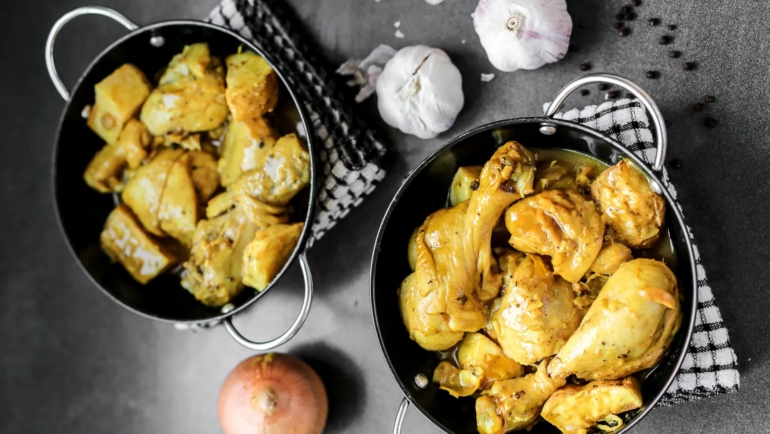
Batangas Cuisine – Adobo sa Dilaw Ingredients
3. Regional Variations
Batangas takes pride in its regional variations of Adobo sa Dilaw. From subtle tweaks to bold reinterpretations, each locale adds its twist to this iconic dish, showcasing the province’s culinary diversity.
G. Batangas Cuisine – Maliputo at Tawilis
1. Overview of Maliputo and Tawilis
Maliputo and Tawilis, indigenous to the pristine waters of Taal Lake, hold a special place in Batangas cuisine. Maliputo, a type of grouper, boasts a rich and succulent taste, while Tawilis, a small freshwater fish, charms with its delicate flavor. Both are staples in Batangueño households, representing the unique aquatic biodiversity of the region and contributing to the vibrant tapestry of Filipino gastronomy.
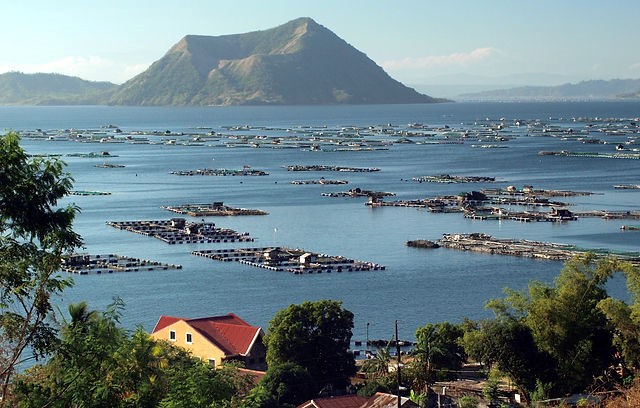
Batangas Cuisine – Taal Lake Fishing Village
2. How They Are Prepared
The preparation of Maliputo and Tawilis showcases the meticulous artistry of Batangas culinary traditions. Maliputo, often grilled or stewed, highlights the natural flavors of the fish, while Tawilis is commonly deep-fried to a crispy perfection. Local spices and herbs add an extra layer of complexity, ensuring that each bite is a symphony of tastes reflecting the freshness of Taal Lake.
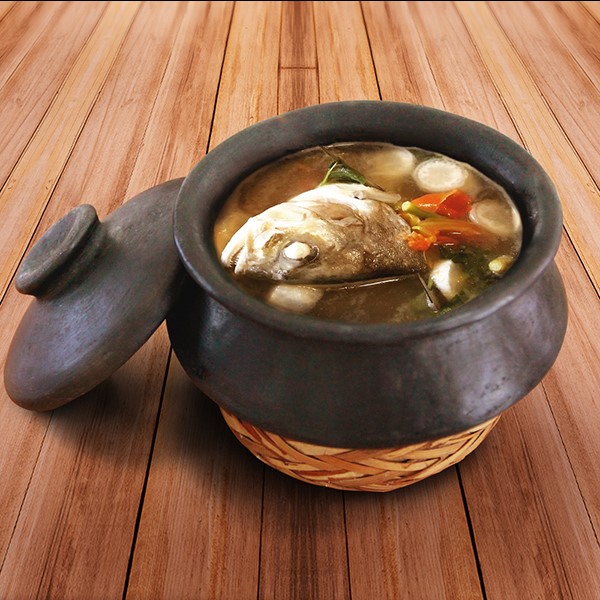
Batangas Cuisine – Sinigang na Maliputo
3. Cultural Significance and Local Stories
Beyond the dining table, Maliputo and Tawilis are woven into the cultural fabric of Batangas. They are featured in local celebrations, symbolizing abundance and prosperity. Stories passed down through generations narrate the deep connection between the people of Batangas and these aquatic treasures. Whether shared in family gatherings or showcased in culinary competitions, Maliputo and Tawilis are not just dishes; they are carriers of local stories and the proud heritage of Batangueños.
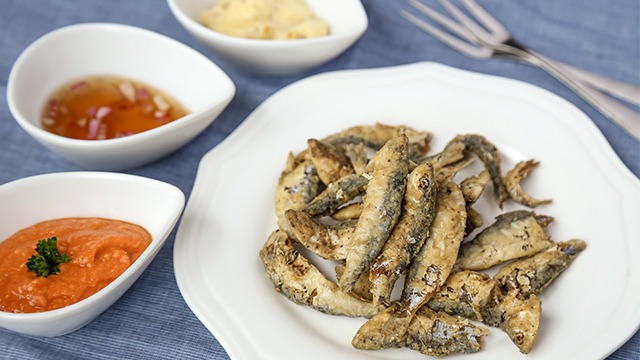
Batangas Cuisine – Fried Tawilis
H. Batangas Cuisine – Tapang Taal
1. Historical Roots
Tapang Taal, a culinary gem of Batangas, traces its roots deep into the historical fabric of the region. Originating from the shores of Taal Lake, this savory dish has evolved over generations, embodying the rich history and cultural tapestry of Batangueños. Its inception can be linked to ancient cooking methods, passed down through familial ties, making Tapang Taal not just a dish but a living testament to Batangas’ culinary heritage.2. Role in Culinary Heritage.
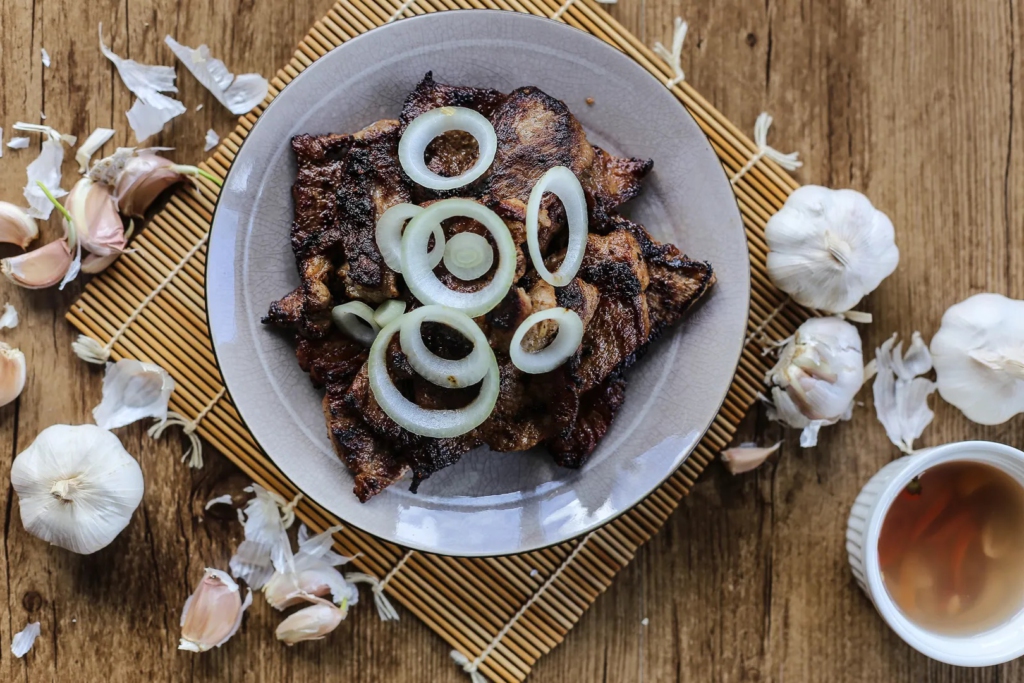
Batangas Cuisine – Fried Tapang Taal
2. Curing Process
The unique flavor profile of Tapang Taal is achieved through a meticulous curing process. Thin slices of meat, typically beef or pork, are marinated in a blend of local spices, vinegar, and soy sauce. The curing process, a delicate balance of time and ingredients, imparts a distinct savory and slightly sweet taste to the meat. This artisanal approach not only preserves the meat but elevates it to a culinary masterpiece, showcasing the craftsmanship embedded in every slice of Tapang Taal.
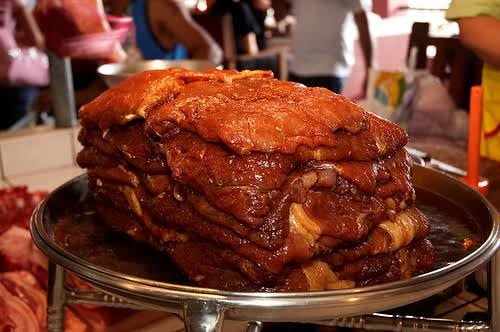
Batangas Cuisine – Tapang Taal Curing Process
I. Batangas Cuisine – Suman
1. Traditional Filipino Rice Cake
Embark on a culinary journey through Batangas, where Suman reigns as a traditional Filipino rice cake. Crafted with meticulous care, this delicacy encapsulates the essence of Filipino culinary heritage. Glutinous rice, coconut milk, and a hint of salt converge to create the perfect harmony of flavors and textures. The art of steaming transforms these simple ingredients into a delectable masterpiece, echoing centuries-old practices.
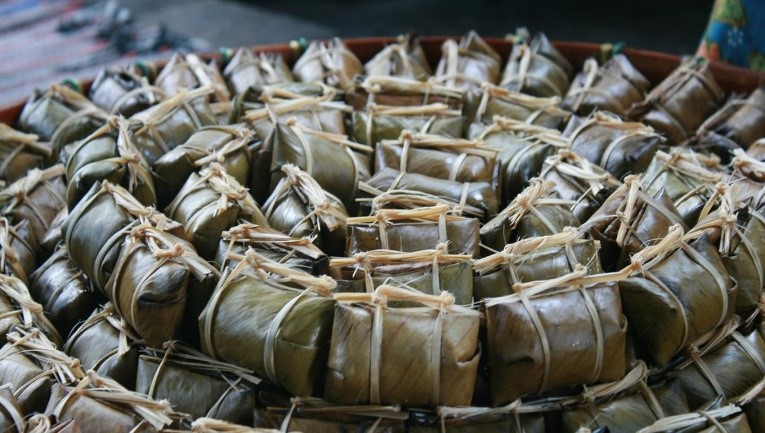
Batangas Cuisine – Suman sa Lihiya
2. Role in Local Celebrations and Gatherings
In Batangas, Suman isn’t just a dessert; it’s a cultural icon woven into the fabric of local celebrations and gatherings. Whether it’s a joyous fiesta or a heartfelt family reunion, Suman takes center stage, symbolizing unity and shared moments. Its presence signifies not just a sweet treat but a connection to tradition, bringing people together in the spirit of festivity.
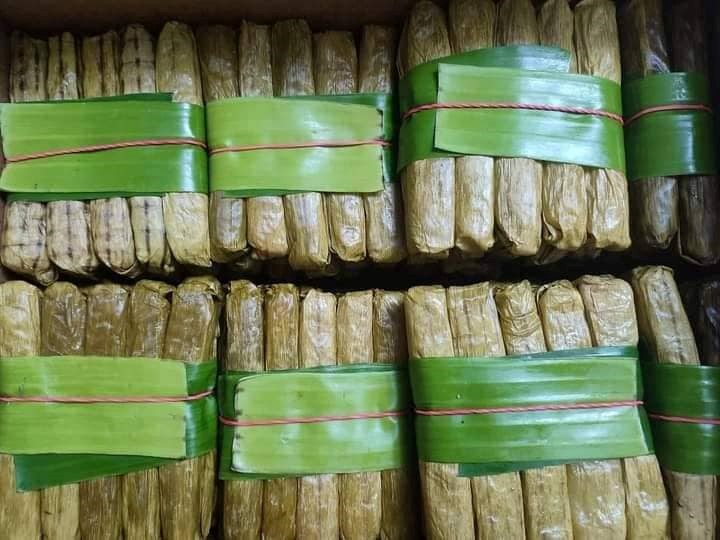
Batangas Cuisine – Suman sa Gata
3. Ingredients and Varieties
The heart of Suman lies in its ingredients, sourced locally for an authentic taste. Glutinous rice from Batangas, coconut milk from nearby palms, and a pinch of salt from the province itself contribute to the distinctiveness of Batangas Suman. Varieties abound, from the classic plain Suman to innovations like pandan-infused or chocolate-flavored, catering to diverse palates and preferences.
J. Batangas Cuisine – Tamales ng Ibaan
1. Historical Roots in Local Cuisine
Tamales stands as a testament to time-honored traditions. With roots deeply embedded in the local cuisine, these tamales narrate a story of heritage, showcasing the evolution of flavors and techniques passed down through generations.
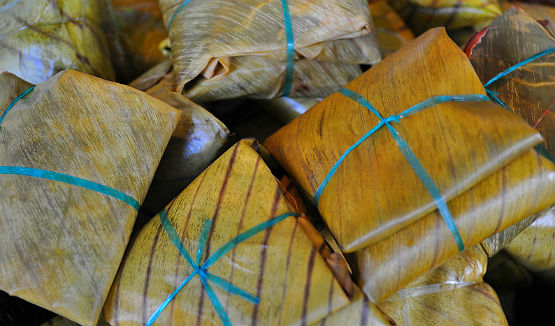
Batangas Cuisine – Tamales ng Ibaan
2. Unique Batangas Street Food
Tamales takes center stage as a distinctive member of Batangas street food culture. Wander through the bustling streets, and you’ll encounter vendors skillfully preparing and serving these delectable parcels. A harmonious blend of rice dough, seasoned meat, and aromatic spices, Tamales offers a unique and flavorful experience that captures the essence of Batangas’ vibrant street food scene.
3. Ingredients and Filling
The secret behind Tamales’ allure lies in its carefully curated ingredients. Locally sourced rice, meticulously selected meats, and a blend of Batangas’ signature spices come together to create the perfect filling. This medley of flavors, combined with the artful wrapping of banana leaves, encapsulates the culinary mastery that defines Tamales.
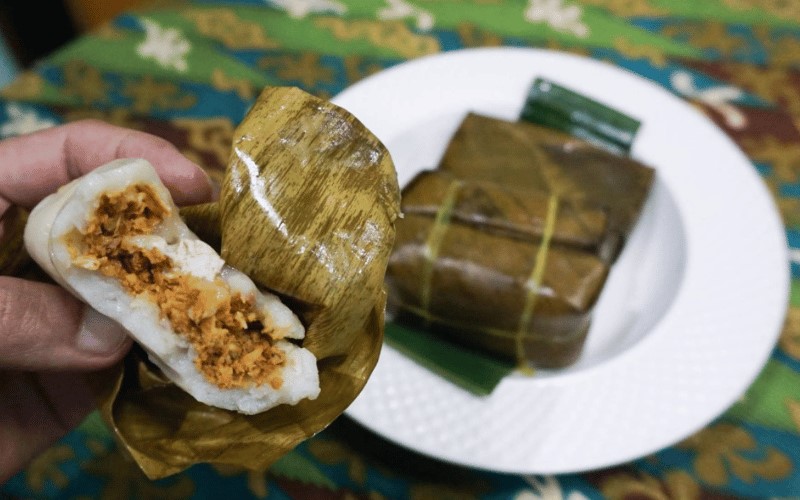
Batangas Cuisine – Tamales Filling
4. Serving Occasions
Explore the traditional occasions and events where Tamales takes center stage. Whether enjoyed during local festivals or as a daily snack, Tamales embodies the spirit of Batangas street food culture.
IV. Batangas Cuisine Culinary Festivities
Batangas comes alive with a vibrant array of food-related events. From annual food fairs to culinary competitions, the province is a hub of gastronomic celebrations. Notable events include the Batangas Food Festival, a showcase of local flavors, and the Batangueño Culinary Challenge, where chefs exhibit their prowess in crafting traditional delicacies. These events not only tantalize the taste buds but also provide a platform for culinary innovation and community bonding.
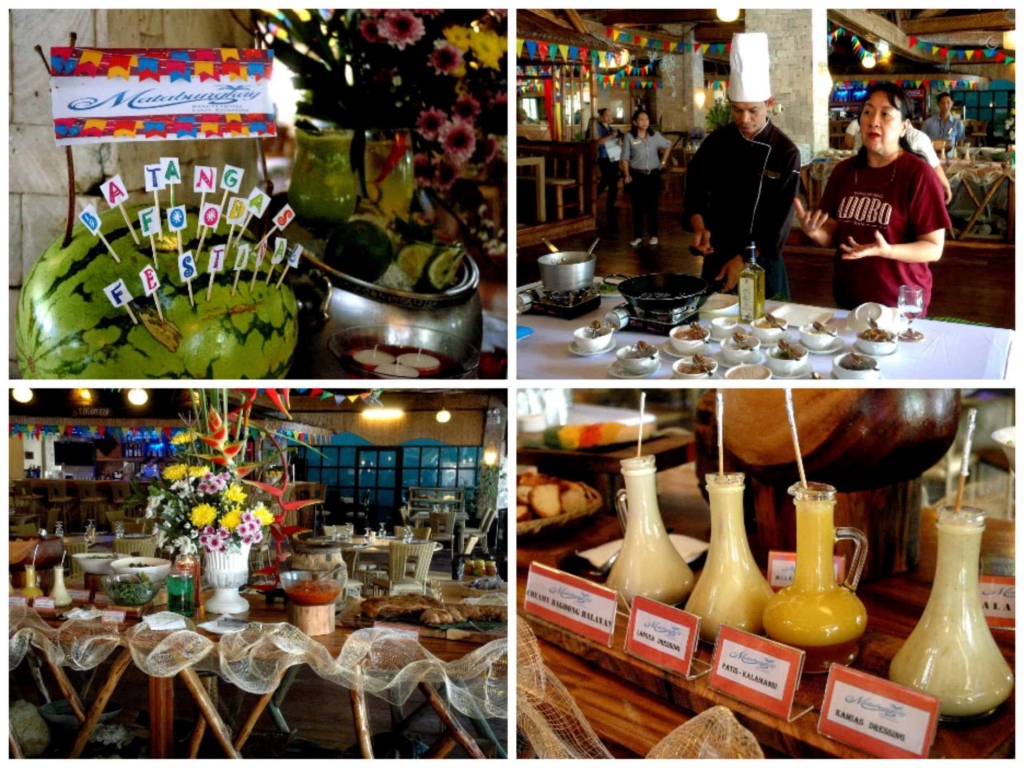
Batangas Cuisine – Batangas Food Festival in Matabungkay Beach
Festivals in Batangas are a feast for both the eyes and the palate. The Pista ng Lomi in Lipa City and the Ala Eh Festival in Batangas City are prime examples. These celebrations center around showcasing the region’s iconic dishes, bringing communities together to revel in the rich tapestry of Batangueño cuisine. Attendees can indulge in a variety of local delicacies, fostering a deep appreciation for the culinary heritage of the province.
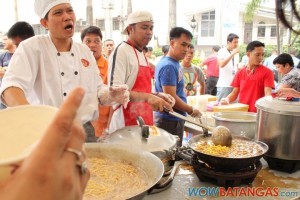
Batangas Cuisine – Lomi Festival
The heart of Batangueño cuisine lies in the skilled hands of local artisans. From expert bakers crafting traditional suman to skilled meat curers perfecting Tapang Taal, Batangas boasts a community of culinary artisans preserving age-old techniques. Featuring their stories and craftsmanship not only honors their dedication but also creates a connection between consumers and the hands behind the delicacies.
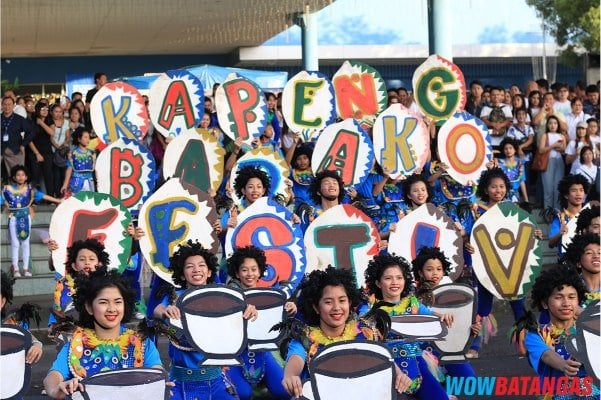
Batangas Cuisine – Kapeng Barako Festival
As you delve into Batangas cuisine, consider engaging with local communities and supporting artisanal producers. Your participation contributes to the preservation of culinary traditions and ensures the sustainability of the vibrant food culture in Batangas.
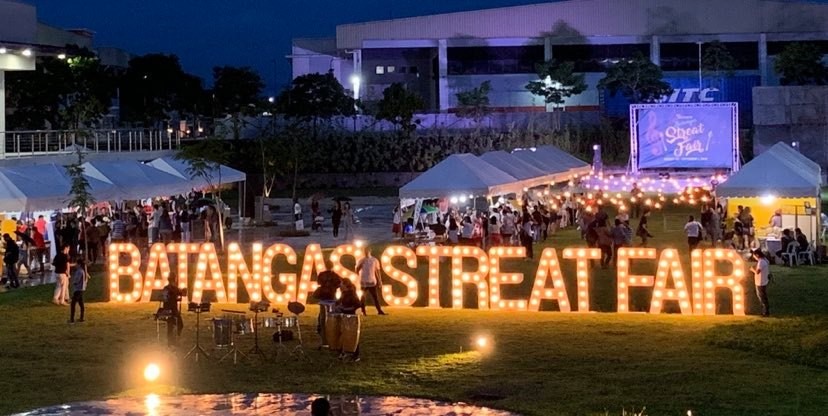
Batangas Cuisine – Batangas Streat Fair
Join the journey, savor the flavors, discover the stories behind each dish and let your taste buds experience the authenticity of Batangueño delicacies. Only then can you become a part of Batangas Cuisine culinary legacy.

